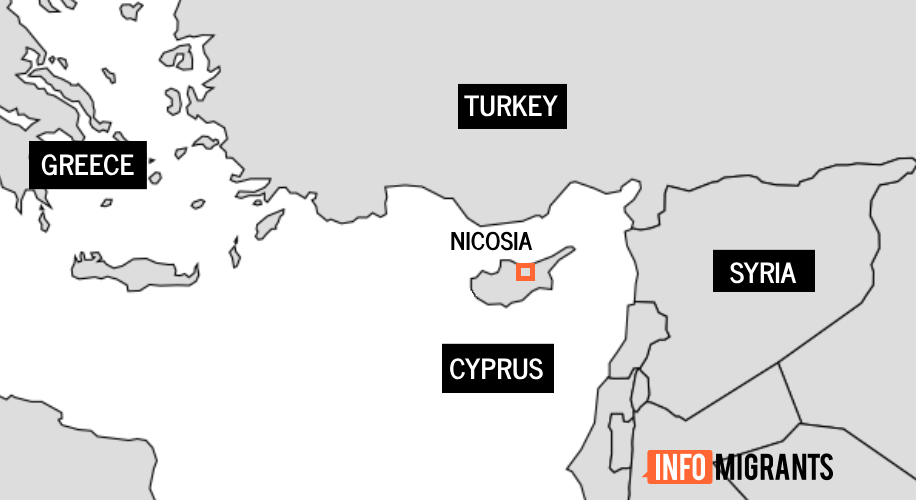The fall of the Assad regime has left Syrian asylum seekers around the world wondering what steps they should be taking next. In Cyprus, there are reports of "hundreds" of Syrian nationals withdrawing their application for asylum in recent weeks.
The government of the Republic of Cyprus, a member of the EU, has suggested that "hundreds" of Syrian asylum seekers based on the Mediterranean island have recently withdrawn their applications for asylum in order to return home.
This appears to have come at an opportune time for the Cypriot government, which has been battling to manage arrival numbers in recent years.
Cyprus has the highest per-capita number of refugees in the European Union due to its proximity to conflict zones in the Middle East, as the eastern-most member of the bloc. By boat, the Mediterranean island is about 160 kilometers west of the Syrian and Lebanese coasts.

Nikolas Ioannides, Cyprus' migration minister, told reporters that an average of 40 asylum requests "made by Syrians [are being] withdrawn" daily since the fall of the Syrian dictatorship on December 9, 2024.
He added that in total numbers this meant that 755 Syrians had already left Cyprus, while another 423 with asylum had waived their refugee or subsidiary protection status.
Among the newer arrivals, 1,367 had expressed an intention to return to Syria, with 944 of them withdrawing their pending asylum applications.
These numbers reflect government data from January 31, 2025.
Read AlsoSyrian returnees face 'desperate conditions', UN warns
'Emergency' block on new asylum applications in 2024
Since the fall of former Syrian leader Assad in December 2024, thousands of Syrian refugees have made their way back home from countries across the EU and beyond, where they had been given protection.
Over the past decade, thousands of Syrian war refugees had fled to Cyprus, which resulted in authorities reportedly being 'overwhelmed' by the sheer number of arrivals.
This resulted in Cypriot officials suspending the processing of Syrian asylum applications altogether early last year, following another increase in arrival numbers in 2024.
Cypriot President Nikos Christodoulides defended that decision at the time as an "emergency" measure in response to several thousand new arrivals from Syria, pushing the island nation beyond its existing capacities over a long period.
Read AlsoAn uncertain future: Returning home to Syria or retaining refugee status?
Talks of resuming Syrian asylum cases
The decision drew a great deal of criticism, however, as the suspension meant that newly arriving asylum seekers would be confined to one of two reception camps on the island without access to due legal recourse under international law. They would be provided with food and shelter but would receive no other benefits.
Additionally, those who chose to leave the facilities without prior permission would automatically forfeit their future rights to receiving any benefit.

EU officials were particularly critical of the scheme, deeming it potentially in breach of EU agreements on the provision of asylum.
Furthermore, Cyprus' overall changes in migration control, including fortifying the border with the Turkish-controlled north, have meant that in the past two years the overall net rate of asylum applications being lodged in Cyprus has actually dropped by over two thirds.
Read AlsoCyprus: Police launch probe into shooting of Pakistani migrant
with Reuters
